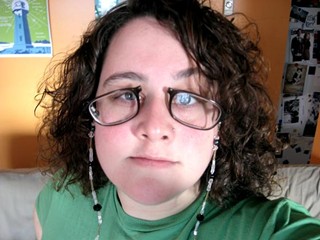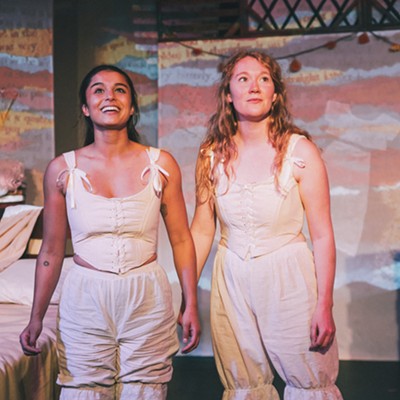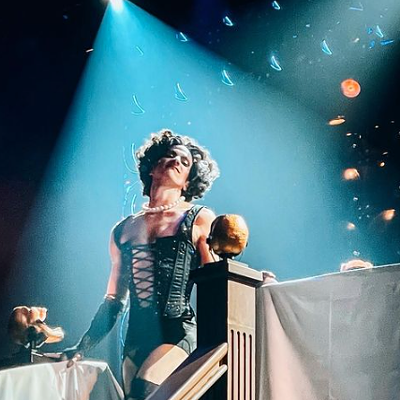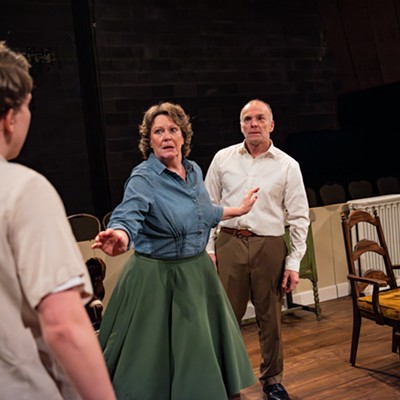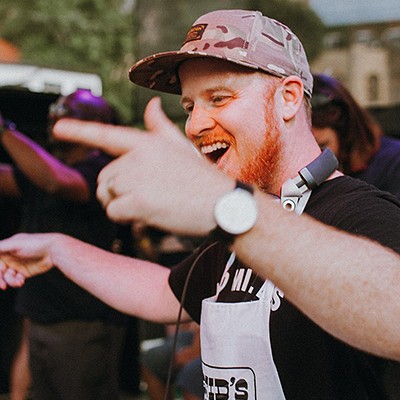Jason MacIsaac and David Christensen have collaborated for over a decade, but they don't write songs together.
"We each take half," says MacIsaac. "I don't want to be absolute about that, but that tends to be the case. Certainly Dave arranges a lot of my contributions to Zuppa, but he writes his stuff and I write my stuff."
"I suppose we could collaborate, but maybe we'd only get half as much done," says Christensen.
They've co-produced Jenn Grant's Orchestra for the Moon and Brent Randall's We Were Strangers in Paddington Green, but the bulk of the work they've done together, outside of their original relationship in The Heavy Blinkers, has been for Zuppa Theatre. MacIsaac's relationship with the company goes back to adolescence---he went to high school with Ben Stone and Susan Leblanc-Crawford---and his first score was for the 1999 staging of Nosferatu. He brought in Christensen for the re-mount in 2001 and the relationship has continued over seven productions.
Poor Boy has been an opposite process---the pair delivered its dark, sorrowful score before there was a script.
"I knew of this one that it was going to be set in modern time, because they hadn't done that before. Beyond that, we had no idea," says MacIsaac. "Now it informs the music in a different way than it did before, because it's a play about music. And I'm glad I didn't know in advance, because I probably would've written too literally for a fading rock star---I would've written rock songs or something, which would've been the kiss of death."
The lush, melodic, instrument-laden Heavy Blinkers sound has always worked well with Zuppa's plays and its performers---especially stellar singers Leblanc-Crawford and Stewart Legere---but the composers had to work within limits: the actors, mostly untrained musicians, would perform the score live, and there are only five of them.
"I had it in my mind all the time that they had to be playing this, but it didn't mean that we dumbed it down, I don't think," says Christensen. "They're pretty good."
"For my stuff, I knew it that would be more sparse than what I had presented. And that was a bitter pill for me to swallow as a composer, but I knew it was a reality of it," says MacIsaac. "That which is musical is not necessarily theatrical---if everybody is just sitting in place, playing, it becomes a concert, not a play."
MacIsaac listened to Leonard Cohen, Beirut and Amelie composer Yann Tiersen while writing his half of the music. (Both Christensen and MacIsaac compose on piano.) "He probably wrote his in the shower in five minutes," he says of Christensen.
"Not in the shower," comes the reply, "but I wasn't listening to anything."
Despite the different confluence of writers, influences and voices, the music of Poor Boy sounds uniformly thematic, like a well-woven concept record.
"When you watch the Zuppa plays, with very few exceptions, I don't think there's a person out there who can tell who wrote what," says MacIsaac. "Which I think is a testament to Zuppa's playing, how much Dave and I are on the same page, and how much our music compliments each other. I forget sometimes. I take credit for his stuff when people like it better."


